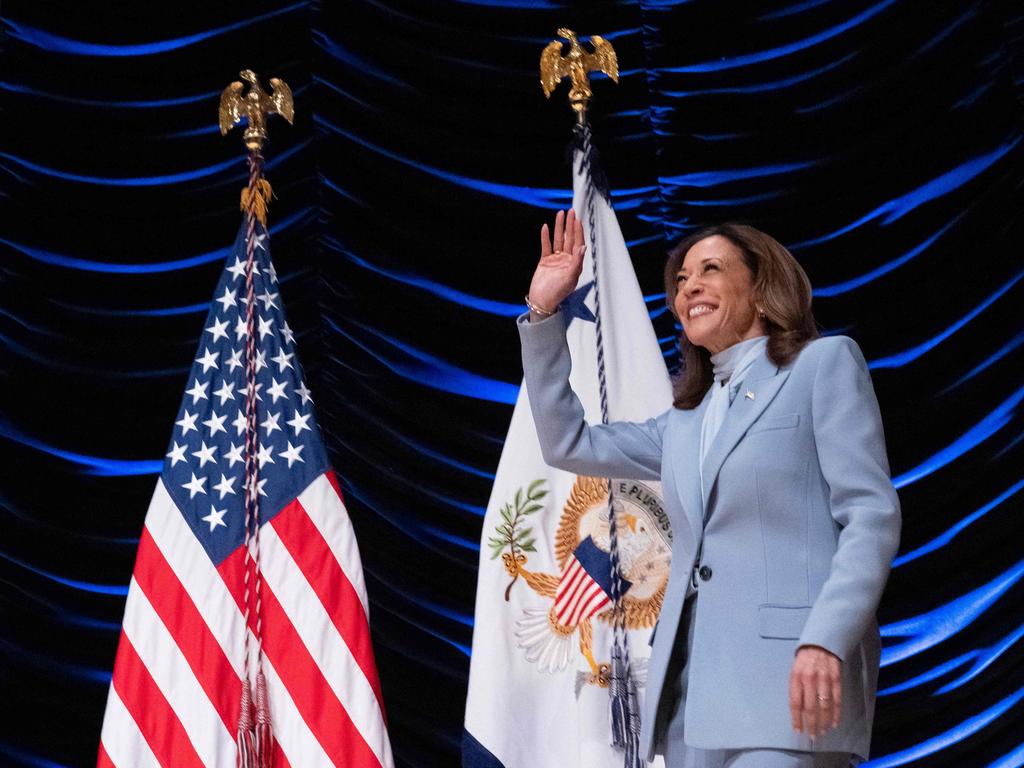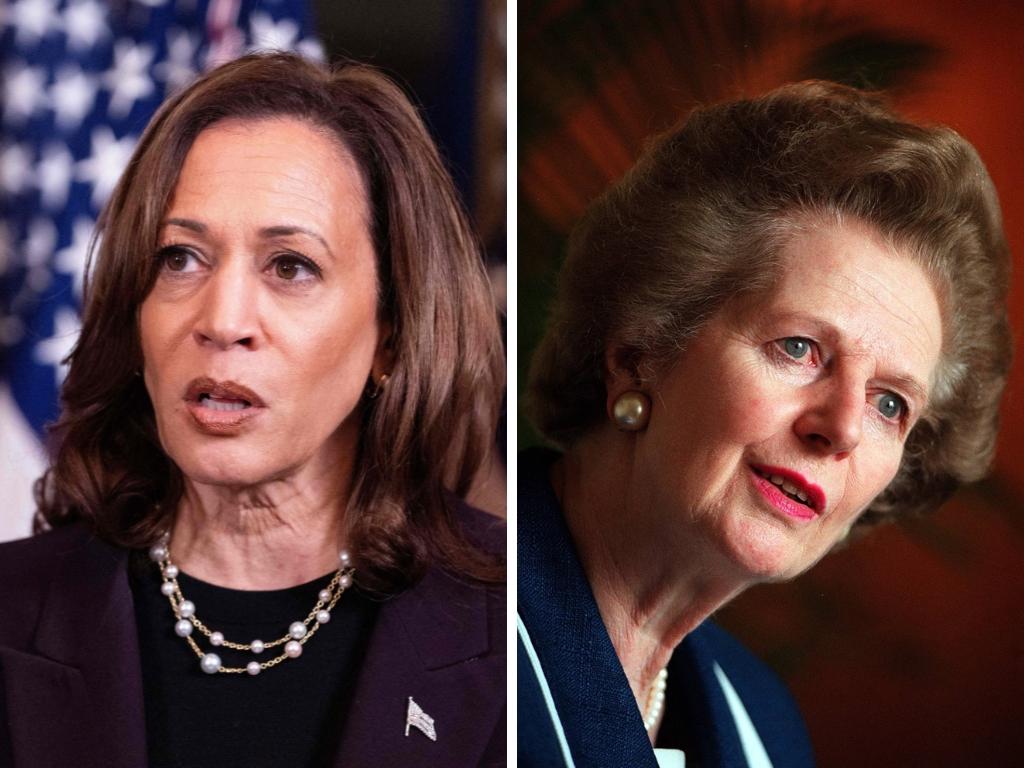Kamala Harris makes undercover push to win over corporate America
The Vice-President has campaigned on holding big business accountable but has privately sought advice from CEOs and investors.

Texas billionaire Mark Cuban only occasionally spoke with President Biden or his aides.
But when he thought over the summer that drug-industry middlemen were hiking up the cost of medicines to drive independent pharmacies out of business, he found an eager sounding board in Kamala Harris’s presidential campaign.
Cuban, a celebrity entrepreneur who dabbles in politics, has spent hours in recent weeks on phone calls, text and email chains talking with the Harris campaign about the pharmacy problem – an issue he is familiar with because of an online pharmacy he co-founded – and taxes, Wall Street, and the deficit, too.
When the Harris campaign rolled out its platform, Mr Cuban saw a nod to their conversations. The platform specifically mentioned that as president, she would take on the “pharmacy middlemen” that he opposes.
Like past Democratic candidates, Ms Harris has made taking on wrongdoing by American corporations a central part of her pitch to voters, referring on the campaign trail to her record of taking on big business, blaming food manufacturers for high grocery prices and promising to increase taxes on corporations and the wealthy. But, in private at least, she is making a quiet play for corporate America’s support, seeking out advice from leaders across sectors. She has offered few policy specifics, but many executives say they view her openness to their feedback as enough for now.
Cuban’s experience reflects that of other business leaders who say they have found an open ear and even hand in Ms Harris. The vice president has worked to cultivate relationships with Wall Street and Silicon Valley in recent years – a different approach than the one taken by Mr Biden, who business leaders say didn’t make a concerted effort to engage them beyond formal meetings, such as a roundtable on prescription drug costs Cuban attended at the White House in March. This past week, Ms Harris also spoke with another top financier, JPMorgan Chief Executive Jamie Dimon, according to people familiar with the matter.
In the 10 days before Mr Biden bowed out of the race, his campaign received around $91,000 from about 990 donors who self-identified as CEOs, according to fundraising reports filed with the Federal Election Commission. In the 10 days after, Ms Harris’s campaign received nearly $2 million from 5,000 such donors.
She has hosted dinners of eight to 10 chief executives at the vice president’s Naval Observatory residence, according to attendees, to discuss a range of topics with guests such as Visa’s Ryan McInerney, who is a Democrat, Motorola Solutions’ Greg Brown, a Republican, and CVS Health’s Karen Lynch, who isn’t publicly affiliated with either party.
Over the course of hours, attendees said, she would typically listen to their thoughts on infrastructure funding, the Inflation Reduction Act, diversity, equity and inclusion efforts, China and the labour market. Some of them came away impressed. “She was given a bad rap in the echo chamber,” said one.
Ms Harris gave a personal tour of the grounds and residence to the guests, walking them through the garden and pointing out art that she selected, including from prominent Black artists such as the late Washington, D.C.-based abstract painter and sculptor Sam Gilliam.
To be sure, many chief executives say they have found themselves without a natural political home this election season. Ms Harris’s criticism of Mr Trump for giving tax breaks to billionaires and big corporations turned off some business leaders who are choosing to sit on the sidelines, and some in Silicon Valley have shifted their support to Mr Trump, in part over Democrats’ approach to regulation.
Her personal courting of the business community has, however, fuelled optimism that she would reject some progressive priorities as president that executives view as damaging.
Corporate leaders have already scored a major win: The vice president recently backed a less drastic increase in the top capital-gains tax rate, breaking with a plan Mr Biden outlined in his budget blueprint earlier this year.
Executives have also pressed Ms Harris to ditch more of Mr Biden’s major tax proposals in that blueprint. One plan would tax unrealised capital gains above $5 million at death. Another, which the administration calls the billionaire minimum income tax, levies taxes on some unrealised gains during life for people with a net worth over $100 million.
Ms Harris hasn’t specifically weighed in on taxing unrealised gains but has said she supports a billionaire minimum income tax. A Harris adviser said she is open to structuring that tax differently than Mr Biden did, though the nontaxation of unrealised gains is the core problem it attempts to solve. Other options, however, likely wouldn’t yield as much in revenue to offset her expensive policy proposals.
Roger Hochschild, former CEO of Discover and a Harris supporter, said that, despite those uncertainties, he believes Ms Harris would “find the right balance” on taxing the wealthy if elected. Mr Hochschild was one of roughly 100 business leaders to sign a recent letter endorsing Ms Harris.
Many business executives also have pressed Ms Harris on one of their most coveted demands: replacing Lina Khan, the chairwoman of the Federal Trade Commission. Several major Harris donors, including LinkedIn co-founder Reid Hoffman, have privately and publicly urged Ms Harris to oust Ms Khan if elected, arguing her aggressive approach to antitrust enforcement has hampered deal making. A spokesman for Ms Khan declined to comment.
Ms Harris, according to people familiar with the discussions, has tried to keep the talk focused on antitrust policy instead of personnel, with some of the people saying the vice president has emphasised she would embrace regulation that doesn’t unnecessarily damage businesses.
Ms Harris frequently tells her advisers that the government alone can’t fix complex problems and sought out the private sector on assignments she was tasked with, including securing $5.2 billion in commitments from companies such as MasterCard and Visa for addressing the long-term causes of migration from Central America.
Her campaign has leaned on some of her economic Wall Street advisers, including investment bankers Blair Effron and Roger Altman, to show she would be better at managing the economy, a priority issue for voters. They and others have insisted that she would govern more pragmatically – and some say she would cede fewer financial issues to the progressive wing of the party, if elected.
“She believes in sensible regulation, predictable and transparent rules of the road for businesses and innovative technologies, and fidelity to the rule of law,” said Brad Karp, chair of law firm Paul, Weiss, who has donated to her campaign.
Ms Harris has also spent time wooing those she previously clashed with. A decade ago, as California attorney general, she had a testy back-and-forth with JPMorgan’s Dimon. Earlier this year, she invited him to lunch, according to people familiar with the meeting, and the two have continued to talk. Ms Harris is reasonable and open to improving how the government and corporations can work together, Dimon told associates after their conversations.
Dimon hasn’t endorsed a presidential candidate. Just 36 hours after Mr Biden’s dramatic exit from the race, Ms Harris and her husband Doug Emhoff shared their thoughts on the state of the campaign around the dinner table at an intimate gathering of supporters hosted by Peter Scher, vice chairman of JPMorgan Chase, at his house in Chevy Chase, Md.
Also in attendance was an avid Harris supporter: Dimon’s wife, Judy Dimon.
Dow Jones





To join the conversation, please log in. Don't have an account? Register
Join the conversation, you are commenting as Logout